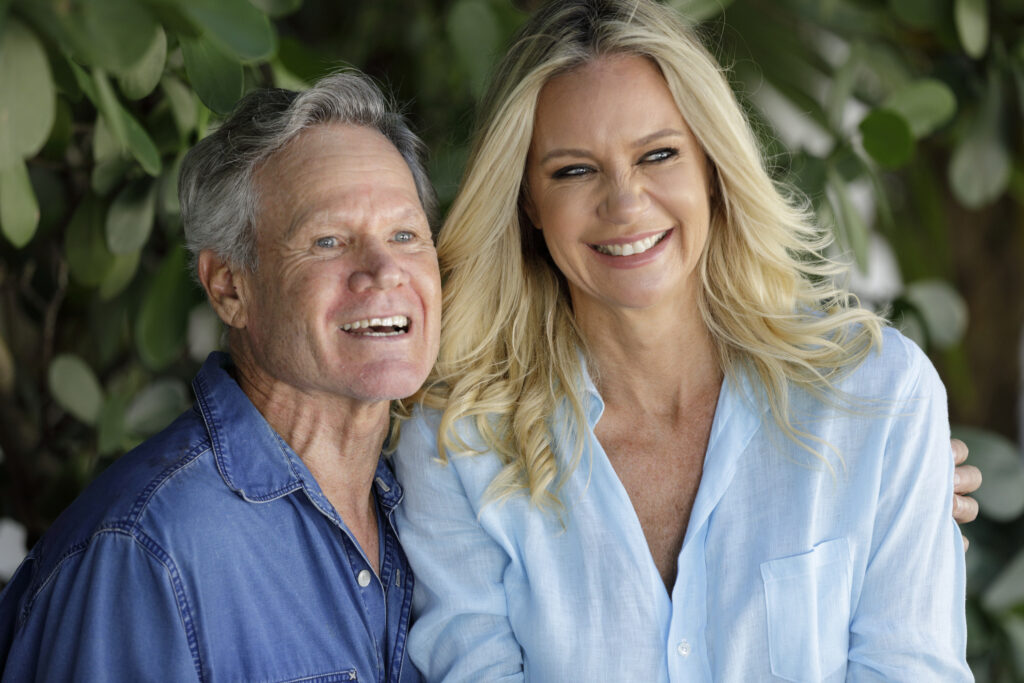You don’t truly understand love until it breaks you, rebuilds you, and stays anyway.

Love will humble you in ways you never saw coming. It starts off like a fairytale—hearts racing, promises made, dreams built. But over the years, love gets real. It stretches you, challenges you, and sometimes breaks you. What you believe about love in your twenties barely scratches the surface of what you’ll know by the time you’re older. It’s not that your younger self was foolish—it’s just that some lessons can’t be taught. They have to be lived. They come through heartbreak, reconciliation, quiet moments, and hard conversations you never expected to have.
1. Falling in love is thrilling—but staying in love takes intention.

In the early days, love feels electric. You’re drawn to each other, full of excitement and possibility. Everything feels new, and the emotional high makes it easy to believe it’ll last forever. But after the novelty fades, staying connected requires effort, say experts at Better Help. That’s when love stops being automatic and starts becoming a choice. You’ll face stress, boredom, miscommunication, and seasons where you don’t feel as close. If you’re not careful, you begin to drift.
Maintaining love takes presence, patience, and a willingness to keep learning how to care for one another. It’s about building routines that support your bond and showing up on the hard days, not just the good ones. People often walk away the moment things feel heavy, thinking it’s broken. But real love isn’t light all the time. It’s durable. It deepens when you keep choosing each other, even on the days when the spark is dim.
2. Passion fades—what’s left can be even better.

There’s nothing quite like the intensity of early love. You’re obsessed with each other, hungry for closeness, excited by every glance and every touch. But no matter how strong that passion is, it doesn’t last in the same way. Over time, those fireworks mellow. That’s not failure—it’s evolution. What often grows in place of infatuation is something richer: comfort, trust, emotional safety. You start to feel secure, not just excited.
Many people panic when passion cools down, thinking they’ve fallen out of love. In reality, remarks Kendra Cherry in an article for Very Well Mind, it’s a natural shift toward a deeper kind of connection. You’re no longer running on hormones; you’re building something stable. Relationships that last don’t rely on constant highs. They thrive on quiet understanding, shared goals, and mutual respect. If you chase the early buzz forever, you’ll miss the joy of what love becomes when it matures. The best parts often start after the fire settles.
3. You can love someone deeply and still not belong together.

This is a reality many people don’t learn until they’ve been through it. You can care about someone with all your heart, feel completely connected in many ways, and still find that you’re not a good long-term match. Maybe your values differ, or your communication styles constantly clash. Perhaps you’re headed in different life directions, despite loving each other’s presence. It’s painful to accept, especially when your emotions are strong.
But love alone doesn’t resolve incompatibility. It doesn’t erase major differences or create a shared vision of the future, according to experts writing for Better Help. Some people try to force it, believing that love should conquer all. What often follows is exhaustion, resentment, and confusion. It’s brave—not weak—to walk away when something isn’t working, even if your feelings haven’t disappeared. Love is powerful, but it doesn’t fix everything. Sometimes, the most loving thing you can do is release someone who isn’t right for you.
4. Lasting love lives in the ordinary, not the dramatic.

We’re sold this idea that love is supposed to look like big gestures, constant passion, and sweeping romance. In reality, the strongest love stories are often built in the most unremarkable moments, states Ishani Mudgal in an article for Medium. It’s in the way someone checks in after your long day. It’s in making tea for each other, folding laundry side by side, or laughing over inside jokes no one else would understand.
These tiny moments build the foundation. The quiet routines, the shared responsibilities, the ability to just be together without performance—that’s where love proves itself. Of course, surprises and excitement have their place, but if you’re waiting for your relationship to always feel like a movie, you’re likely to feel disappointed. The most reliable kind of love doesn’t demand attention. It offers stability, kindness, and daily care. Real intimacy grows when two people choose to show up consistently, even when life feels mundane.
5. You won’t feel head-over-heels every single day.

Romantic love is often portrayed as this all-consuming feeling that never fades if it’s “real.” But those butterflies? They come and go. There will be days when you feel totally in sync—and others when you feel emotionally distant. That’s not a sign of failure. It’s just life. Long-term relationships involve a spectrum of emotions. Stress, illness, grief, fatigue—those things affect how connected you feel.
The key is learning how to stay present during those dips. Don’t panic just because the thrill has dulled. Instead, look at how you treat each other when the glow dims. Are you still kind? Do you still make an effort? That’s where love holds steady. Some days are about fireworks. Others are about quiet loyalty. What matters is the overall rhythm, not the temporary dips. Expecting to feel in love 24/7 sets you up for doubt. Accepting love’s ebb and flow creates resilience.
6. The way you treat yourself shapes your entire relationship.

When you neglect your own needs, it quietly sets the tone for how others engage with you. If you constantly put yourself last, overextend to avoid conflict, or believe you’re undeserving of care, those patterns seep into your love life. They affect who you choose, how you communicate, and what kind of behavior you tolerate. Self-respect isn’t just a personal virtue—it’s relational currency. People often search for someone to “complete” them instead of doing the inner work to feel whole first.
But the more secure you are in yourself, the more you attract relationships built on equality, not desperation. That confidence doesn’t require perfection—it just requires honesty and boundaries. When you value your time, your body, and your emotions, you create a space where healthy love can actually grow. How you care for yourself lays the foundation for how you allow others to love you.
7. Avoiding conflict slowly destroys intimacy.

Arguments aren’t the enemy—avoidance is. When something bothers you and you don’t talk about it, resentment starts to grow. The longer it goes unspoken, the more it hardens into distance. At first, it’s small. A comment you didn’t like, a moment where you felt dismissed. But over time, silence becomes the third person in the relationship, always present but never acknowledged. Expressing frustration, needs, or even disappointment is uncomfortable—but necessary. Love doesn’t require constant agreement. It asks for honesty, patience, and the willingness to repair.
Conflict, when handled with care, deepens trust. It helps you understand each other better and builds emotional resilience. Bottling everything up to “keep the peace” is often a slow road to disconnection. The strongest relationships are not those with no problems—they’re the ones where both people feel safe enough to speak, listen, and work through the mess together.
8. Love will surface your deepest insecurities.

People think falling in love will heal their broken parts. In many ways, it does offer comfort. But it also has a way of bringing your emotional baggage right to the surface. Suddenly, you’re questioning your worth, panicking over being abandoned, or feeling jealous in ways you never expected. Love triggers the places inside you that haven’t fully healed.
That’s not a sign that something’s wrong—it’s an invitation to grow. If you’re aware of your triggers and open to exploring them, the relationship can become a space for mutual healing. But if you deny them or expect your partner to fix them, things tend to get messy. Love can’t fill holes you refuse to acknowledge. What it can do is give you a mirror—a chance to confront what’s unresolved and to be supported while doing it. Loving someone deeply often starts with understanding yourself more clearly.
9. You can lose who you are if you’re not paying attention.

Love often begins with deep connection, but somewhere along the way, some people trade parts of themselves to keep that connection going. They give up friendships, passions, opinions, even routines, trying to maintain harmony or feel secure. It doesn’t always happen in dramatic ways—it’s often gradual. Before long, they barely recognize the person in the mirror. A healthy relationship should encourage you to grow—not shrink. It should support your independence, not swallow it. Of course, compromise is necessary, but not at the cost of your identity.
When you sacrifice too much of yourself, even in the name of love, resentment and dissatisfaction start to creep in. Staying rooted in who you are isn’t selfish. It keeps the relationship balanced and alive. Two complete people loving each other is far stronger than one person disappearing into another’s world.
10. Grace matters more than perfection in lasting love.

Everyone makes mistakes—missed birthdays, harsh words, moments of thoughtlessness. Waiting for the perfect partner (or trying to be one) sets up unrealistic expectations that only lead to frustration. What actually sustains a long relationship is grace. The ability to forgive, to understand the intention behind the action, to give your partner room to be human—that’s where love endures. Holding every misstep against someone turns love into a scoreboard. Letting things go when it’s appropriate doesn’t mean you’re being a doormat—it means you’re focusing on the bigger picture.
Grace builds trust. It creates a safety net where both people can show up honestly. That kind of love doesn’t demand flawlessness. It encourages vulnerability and growth. Relationships flourish when people feel safe to be real, not when they’re walking on eggshells. You don’t need a perfect love story—you need one that allows for being human.
11. Stepping back temporarily can help you move forward together.

Taking a break is often seen as the beginning of the end, but sometimes it’s exactly what a relationship needs. Space can give you perspective you can’t access when emotions are running high or routines are keeping you stuck. You might discover clarity about what’s working and what isn’t. Time apart doesn’t have to mean cutting ties—it can be a chance to breathe, reflect, and figure out if you’re truly aligned.
People grow, sometimes at different paces. A pause can allow each person to reconnect with themselves before deciding if the relationship is worth continuing. It’s not about using distance to punish or create fear. It’s about stepping out of the emotional fog to see things clearly. Sometimes, time apart brings people closer. Other times, it confirms a necessary ending. Either way, choosing distance as a tool, not a threat, can offer the insight needed to move forward with purpose.
12. Love can’t thrive if it’s left on autopilot.

As life becomes full—kids, jobs, health issues—it’s tempting to let the relationship coast. You assume love will take care of itself, especially if everything seems fine on the surface. But love that isn’t actively nurtured quietly begins to unravel. Neglect doesn’t always look like conflict—it often looks like silence, disinterest, or disconnection. The small habits you formed in the beginning—checking in, listening deeply, prioritizing quality time—matter even more later.
Love needs attention. It doesn’t demand constant intensity, but it does need signs that it’s still valued. That might mean showing appreciation, initiating affection, or simply making time to talk without distractions. If you wait until there’s a major issue to start caring again, it might be too late. Relationships aren’t maintained by accident. They’re sustained by everyday choices to stay present and engaged, even when everything else is pulling you in other directions.
13. The relationship you have with yourself sets the tone for every other one.

This isn’t just a cliché—it’s a reality. When you understand your worth, your boundaries, and your emotional needs, you’re far less likely to enter relationships that drain or diminish you. You won’t cling to people out of fear or shrink yourself to be accepted. You’ll be more honest about what you need and less tolerant of patterns that harm you. Loving yourself doesn’t mean you’re always confident or never lonely—it means you trust yourself to walk away when something isn’t right and to hold out for what actually feels nourishing.
The relationship you have with yourself becomes a compass. It helps you navigate what’s healthy and what’s performative, what’s safe and what’s toxic. When you’re grounded in who you are, you’re better equipped to give and receive love in a way that’s real. Inner security doesn’t guarantee perfect love, but it creates the best conditions for it to grow.
